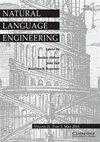网络对话中毒性的语境理解研究
IF 1.9
3区 计算机科学
Q3 COMPUTER SCIENCE, ARTIFICIAL INTELLIGENCE
引用次数: 0
摘要
识别和注释社交媒体平台上的有毒在线内容是一个极具挑战性的问题。研究网络内容毒性的工作主要集中在作为独立实体的评论上。然而,社交媒体上的评论本质上是对话性的,因此,理解和判断评论从根本上来说需要进入评论的语境。我们介绍了一项研究和由此产生的注释数据集,其中我们设计了许多关于背景和其他可观察到的混杂因素(即性别、年龄和政治倾向)对在线内容毒性感知的重要性的对照实验。我们的分析清楚地显示了上下文的重要性和可观察到的混杂因素对注释的影响。也就是说,我们观察到每个对照组的毒性与无毒判断的比例可能非常不同,并且在存在上下文信息的情况下,更高比例的样本被判断为有毒。本文章由计算机程序翻译,如有差异,请以英文原文为准。
A study towards contextual understanding of toxicity in online conversations
Identifying and annotating toxic online content on social media platforms is an extremely challenging problem. Work that studies toxicity in online content has predominantly focused on comments as independent entities. However, comments on social media are inherently conversational, and therefore, understanding and judging the comments fundamentally requires access to the context in which they are made. We introduce a study and resulting annotated dataset where we devise a number of controlled experiments on the importance of context and other observable confounders – namely gender, age and political orientation – towards the perception of toxicity in online content. Our analysis clearly shows the significance of context and the effect of observable confounders on annotations. Namely, we observe that the ratio of toxic to non-toxic judgements can be very different for each control group, and a higher proportion of samples are judged toxic in the presence of contextual information.
求助全文
通过发布文献求助,成功后即可免费获取论文全文。
去求助
来源期刊

Natural Language Engineering
COMPUTER SCIENCE, ARTIFICIAL INTELLIGENCE-
CiteScore
5.90
自引率
12.00%
发文量
60
审稿时长
>12 weeks
期刊介绍:
Natural Language Engineering meets the needs of professionals and researchers working in all areas of computerised language processing, whether from the perspective of theoretical or descriptive linguistics, lexicology, computer science or engineering. Its aim is to bridge the gap between traditional computational linguistics research and the implementation of practical applications with potential real-world use. As well as publishing research articles on a broad range of topics - from text analysis, machine translation, information retrieval and speech analysis and generation to integrated systems and multi modal interfaces - it also publishes special issues on specific areas and technologies within these topics, an industry watch column and book reviews.
 求助内容:
求助内容: 应助结果提醒方式:
应助结果提醒方式:


